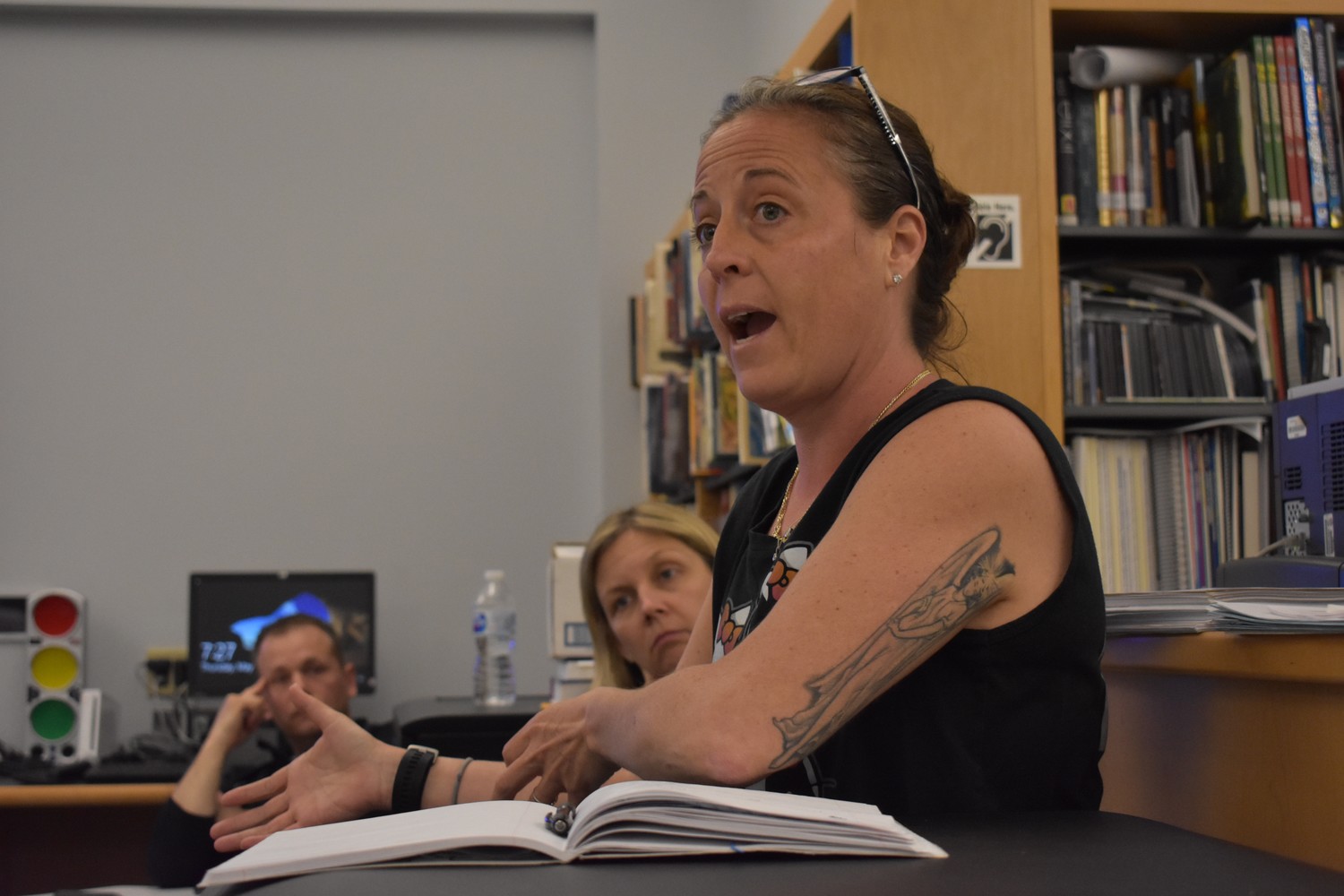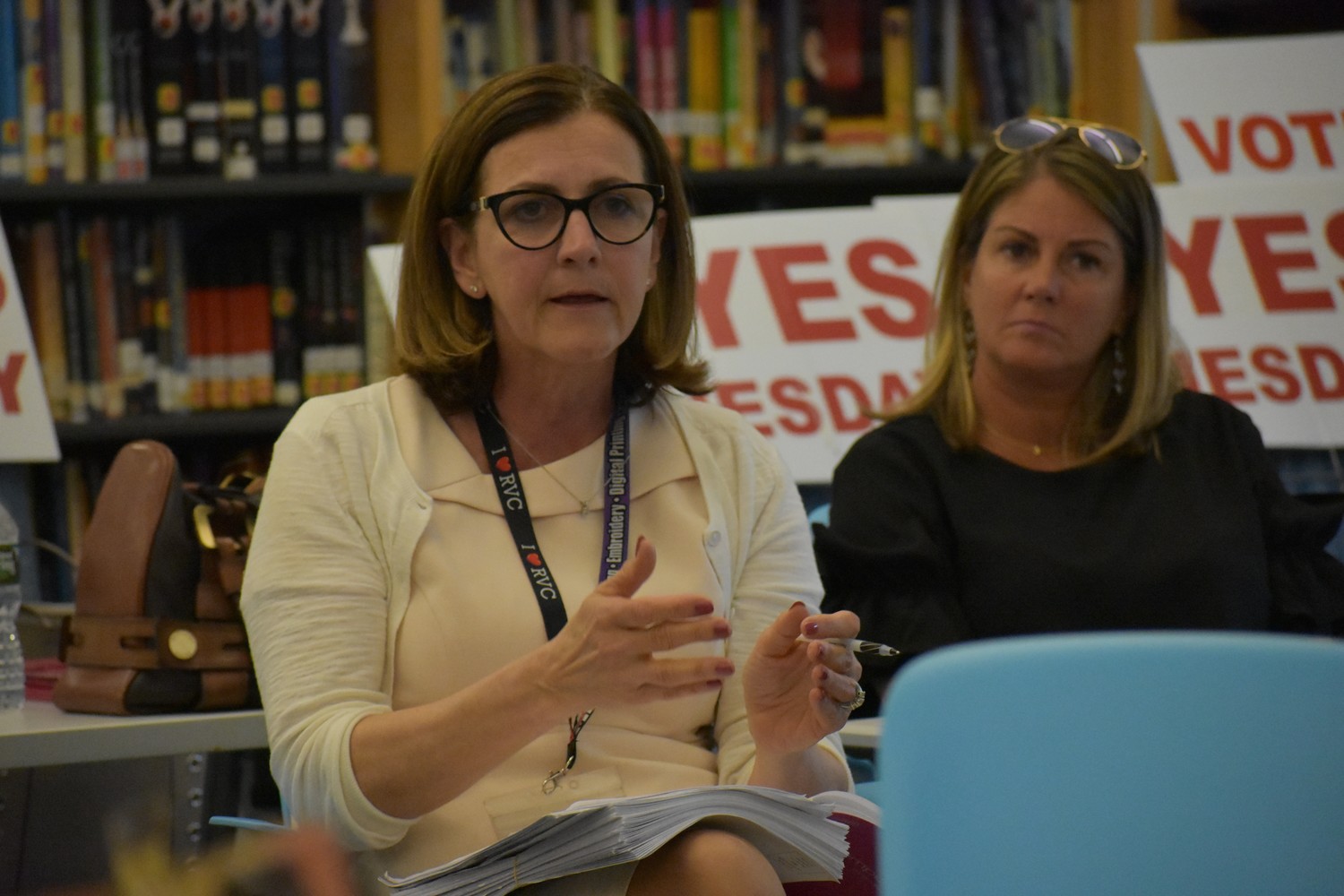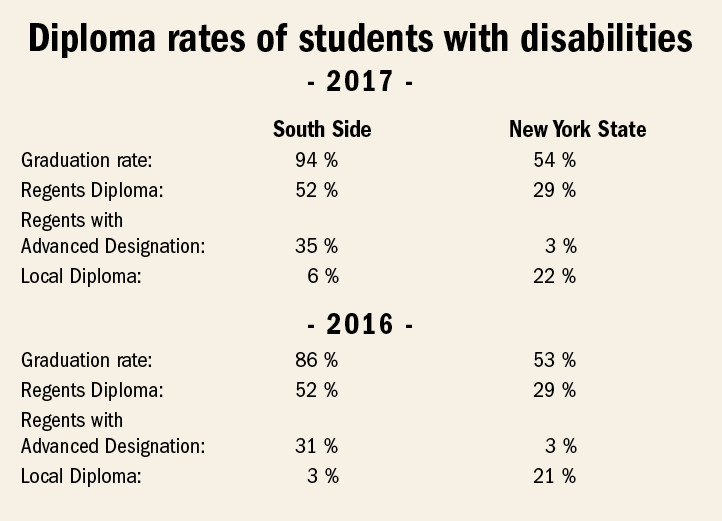Rockville Centre parents implore district officials to tweak schools' inclusion model
Series of forums address concerns on special education

“We have children who are falling through the cracks,” said Elizabeth Licata, a parent of three children with special needs in the Rockville Centre district. “We’re asking these kids to do something that they’re never going to accomplish.”
Licata was one of dozens of local parents who came to voice concerns about their children with special needs — many urging administrators to “tweak” the district’s inclusion model. The stories of the students’ struggles — paired with suggestions — were aired at a series of three forums held by Rockville Centre’s Special Education Partners, or SEP, formerly known as the Special Education Parent Teacher Association.
The forums took place on April 24, May 1 and May 4, and tackled issues at the elementary schools, high school and middle schools, respectively. Schools Superintendent Dr. William Johnson; Dr. Noreen Leahy, assistant superintendent for pupil personnel services and special education; and the schools’ principals fielded questions about topics including support services for students with disabilities, the district’s International Baccalaureate courses and the pathways to graduation for those with special needs. Board of Education members sat among the parents, listening.
Though Licata, SEP’s adviser, acknowledged that many students with special needs receive appropriate support, others are getting “lost in the shuffle” in Rockville Centre’s inclusion model, which she said can seem at times like “one size fits all.”
During the forums, several parents told administrators that their child did not need all of the support provided in the district’s CORE special-education program, but that navigating certain courses with general-education students is beyond daunting. “It’s those kids in the middle that we’re trying to make a difference for,” Licata said.
The Rockville Centre School District prides itself on being inclusive, with many options and means of support provided for students with different needs. But some parents believe their children need more support, explaining that having a special-education teacher come into a general education classroom for two periods a day at the elementary level, for example, is not enough.
Maryanne Peder-sen, SEP’s representative for South Side High School, has a 10th-grader who receives Academic Enrichment, which means he has one period each day with a special-education teacher, and has that teacher or an aide with him in his other main subject courses — among general education students — for support. The special-education teacher does not go with him to other classes, however, such as electives and foreign language courses.
“Some of these kids can handle it on their own, and some of them can’t,” Licata said, adding that in a perfect scenario, the district would have a section for struggling students to have a general-education and special-education teacher in inclusive classrooms all day.
Pedersen, and others, also said that International Baccalaureate classes that students take as juniors, such as I.B. English, are too challenging, and that they are being set up to fail. “An A.P. class and an I.B. class are the same,” Pedersen said. “Would I put a special [education] student through [as] an A.P. student? No. Is this necessary? I don’t think so.”
Johnson and Leahy said throughout the meetings that challenging students is crucial to education, and that the district provides support to accommodate children who might struggle. Leahy added that Individualized Education Programs are written in order to provide students with the instruction they need to thrive. At other points during the forums, administrators asked parents to contact them directly, because they could not respond to a specific child’s situation in public.
“These children are the most important thing in the parents’ life, and they want to make sure they get every opportunity,” Leahy said. “So do we.”
Other parents implored the district to be more transparent. “I think the big takeaway with me was the importance of clear communication,” Leahy told the Herald after the forums. “Special [education] can be a confusing world, especially when you’re first entering. We have to remember to be sensitive of the fact that just because we understand the regulations, and we understand the intent of programs, and we understand special-education instruction, parents may not, necessarily.”
Kristina Seidenstein, who has a son in eighth grade, called for “a thoughtful and comprehensive evaluation of our current program.” For example, she and other parents recommended a two-year track for Regents classes such as algebra and earth science, noting that taking these state exams in eighth grade is difficult. Currently, she added, her son receives tutoring services four to six times a week to keep up with these courses and others, amounting to $1,200 per month.
“Everybody has a breaking point,” Seidenstein said, “and we’re really pushing these young kids very, very far in these fast-paced, advanced courses that they’re not ready for in many cases.”
Johnson said that delaying the algebra Regents one year, for example, would likely not improve a child’s chance of passing. He added that collecting credits in eighth grade to put toward graduation requirements allows students to explore more opportunities in high school.
“Perceptions that people have of the system are very important to us,” Johnson said. “At the end of the day, perception makes a huge difference. We want to make sure that the perception matches the reality.”
Other parents discussed the seemingly insurmountable hurdle for their children with special needs to pass the required five Regents exams and looked to district officials for alternatives. The State Board of Regents last year adopted regulations that will allow high school students with special needs to earn local diplomas without passing any Regents exams. It permits those who have passed their English Language Arts and math Regents courses — but are unable to earn the minimum grades — to seek a superintendent’s determination by completing the requirements of the New York State Career Development and Occupational Studies Commencement Credential.
Pedersen noted that SEP will host a meeting about diploma options on June 12 in the Francis F. Wilson Elementary School auditorium.
Leahy said she is proud of Rockville Centre’s special-education program, noting that 94 percent of students with disabilities graduated last year. The state average, she said, was 54 percent.
Licata said she was confident that the forums highlighted important issues and that the parents and district can work together to help those struggling.
“Honestly, there’s nothing necessarily wrong with the model that Rockville Centre has. It just doesn’t work for everybody,” she said, adding that every child has different needs. “. . . I give the district a lot of credit to try to do it as best they can.”









